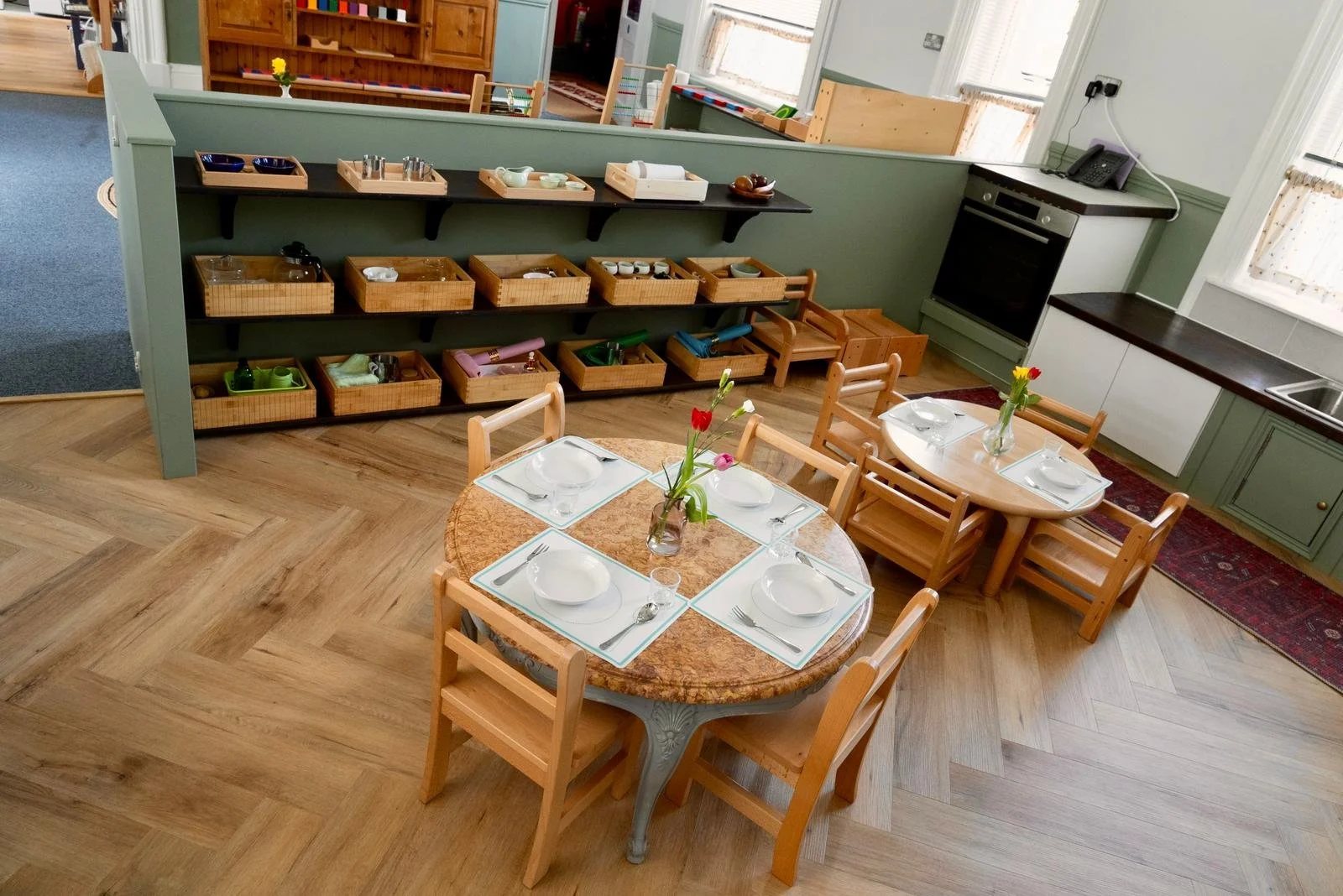Infant Community (IC) – Rising 2 to 3 Years
As children transition from infancy to toddlerhood, they enter the Infant Community (IC)—a vibrant and stimulating environment designed to support independence, confidence, and social development. This stage is a time of rapid growth, where children begin to explore their surroundings with curiosity, develop their personalities, and refine essential skills through hands-on activities.
The Infant Community is carefully prepared to meet the developmental needs of toddlers, allowing them to engage in purposeful activity while feeling secure and supported. The environment fosters freedom within limits, meaning that children can move, explore, and choose their own activities while being gently guided by experienced Montessori educators.
A Space for Independence and Discovery
Every element of the IC classroom is thoughtfully designed to encourage self-directed learning, independence, and movement. Children are given the time and space to practice essential practical life skills, build relationships with peers, and develop their concentration through carefully chosen activities.
Key features of our IC indoor environment include:
Low open shelving filled with Montessori materials, allowing children to choose their own work
Child-sized furniture and tools that support independence in daily tasks
A welcoming and language-rich atmosphere where conversations, stories, and songs are an integral part of learning
Hands-on activities that encourage problem-solving, coordination, and fine motor development
Alongside the indoor classroom, we also have a smaller, covered outdoor area, exclusively for our IC children, where they can continue their learning and exploration in a safe and engaging environment.
Our Activities
In Montessori education, we refer to a child’s play activities as "work", because we recognize and deeply respect the fact that during the first three years of life, children are actively creating the fundamental skills and characteristics that will shape them as individuals.
Our activities are designed to be fun, enticing, and engaging, with a strong emphasis on independence, creativity, and concentration. Our skilled Montessori educators encourage each child to choose their own work, allowing them to develop focused attention on one task at a time. Children are supported in completing a full cycle of activity before moving on to the next, fostering a sense of accomplishment and confidence.
Our Indoor Classroom Features Designated Areas for:
1. Practical Life
Engaging in real-life skills such as food preparation, cleaning, washing, and polishing
Practicing large motor skills through sweeping, mopping, washing, and digging
Encouraging self-care routines, such as dressing, toileting, and personal hygiene
2. Manipulative Toys
Activities designed to strengthen fine motor skills and logical thinking
Puzzles, sorting, matching, and grading exercises to promote cognitive development
3. Art and Crafts
A variety of creative media, including paint, chalk, clay, glue, crayons, and pencils
Opportunities for self-expression and hands-on artistic exploration
4. Songs and Music-Making
A child-friendly CD player with a collection of engaging songs
Musical instruments such as percussion instruments, a xylophone, and a glockenspiel
Rhythm-based activities that support language development and coordination
5. Language Activities
A cozy reading corner with age-appropriate books
Vocabulary enrichment games to support speech development
Daily opportunities for meaningful conversations, enhancing language and communication skills
Our Outdoor Environment
In addition to our engaging indoor classroom, the Infant Community has a dedicated outdoor area designed specifically for sensory play, movement, and creative exploration.
Key features include:
1. Natural Construction Blocks and Logs
Encouraging creativity, balance, and problem-solving skills
2. Dressing Up and Role-Play Area
Fostering imaginative thinking, storytelling, and social interactions
3. Car Track with a Variety of Vehicles
Developing hand-eye coordination and early problem-solving skills through play
4. Quiet Area for Reading
Providing a peaceful space for children to engage in books and storytelling
5. Small Parachute, Ribbons, and Sensory Exploration
Encouraging movement, coordination, and sensory awareness through playful activities
Fostering Independence and Social Growth
At this stage, children begin to develop a stronger sense of self and enjoy interacting with their peers. The Infant Community setting naturally supports this social growth, teaching children to:
Respect others and share space harmoniously
Develop communication skills through group activities and peer interactions
Learn to take turns and practice patience
Experience guided conflict resolution, helping them navigate emotions and social situations with kindness
By the time children complete their time in the Infant Community, they have developed a strong foundation of confidence, independence, and self-motivation, preparing them to transition smoothly into the Children’s House (Casa dei Bambini) at age three.


